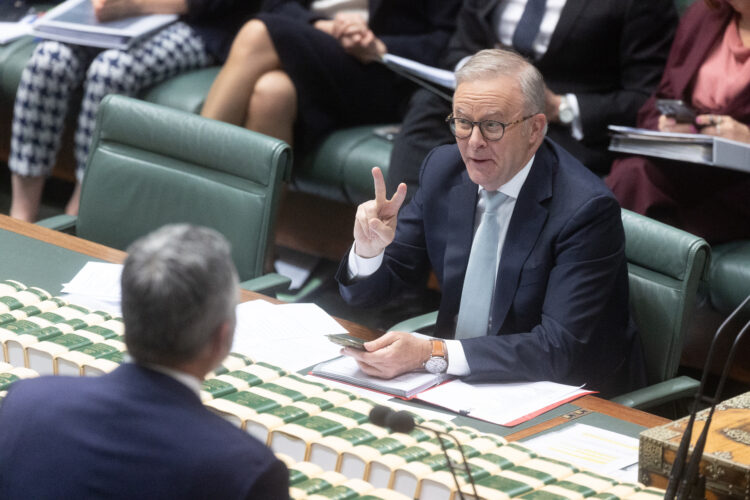On the topic of the private members bill that Barnaby Joyce wants to introduce, calling to scrap net zero, which is just designed to put pressure on Littleproud’s leadership and cause a ruckus, Littleproud says he is feeling quite relaxed over it all.
Joyce’s bill will go nowhere, but the government probably will get it to run to get all the Nationals (and any Liberals) on the record complaining about climate action, because that works for them politically. They’ll draggggg that bill on for as long as possible, but there is zero chance of it getting through, or having any impact.
What Joyce’s bill WILL do is keep all the leadership tensions running strong and help build the case to change leaders. Which is a pincer movement he is starting with the help of his former rival, Michael McCormack. The enemy of my enemy, you know?
Littleproud said he’s not bothered (which means he is bothered)
That’s the entitlement of every member. As a backbencher you can do it at your will. Is that a bad thing that we have a democracy that you come to this place and you put in a private members’ bill? We’ve got a process that our party room has agreed to.
We’re going to stick to that.
Individuals have every right and I celebrate diversity of ideas and those that want to take up the parliamentary processes that are here.
I have nothing to fear. I’m very comfortable in my own skin in terms of what I’ve achieved.
I tell you what, over the last three years, let me tell you, who set the national agenda and the first political party to say no to The Voice? The political party that finally got divestiture in Coalition party? Who got nuclear energy as part of the Coalition policy? Who was the party that stood up when those were going to be eroded and taken away from us to say we’re out of the Coalition? Who stood up to it and made the Liberal Party agree to those conditions? Who got an extra Treasury portfolio for the first type for the National Party? *
I think the Nats bat highly above their weight. When we say we’ll negotiate, we mean it. I’m comfortable of putting faith in the party room. Individuals that are on the backbench have the right to go and be able to put private members’ bills. But I lead a party room and I work on the collective and the majority of the collective. The majority of the collective have got it right. The Coalition got it right on nuclear and The Voice. Our track record as a party room over the last three years is far superior to any other political party in this House whatsoever.
*All of these are reasons the Coalition have lost more seats and will lose more seats in the coming election.
